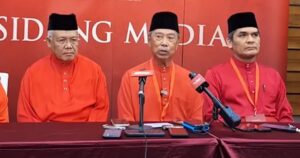
Bertam assemblyman Reezal Merican Naina Merican today proposed a targeted rebate scheme to reduce the impact of the increased quit rent on the B40 and rural communities in Penang.
Reezal expressed concern over the direct impact of the new rates, particularly on residents of traditional villages and rural areas now classified as urban.
He proposed that the state government provide phased and targeted rebates for landowners in villages and those in the B40 category.
“The new rates represent a significant burden, especially for low-income landowners and elderly citizens who have inherited family land for generations,” he said in a statement.
Reezal, a former federal minister, also said the state government should reassess the boundaries of newly gazetted urban areas to ensure that rural and traditional village areas are not automatically included without considering existing infrastructure and the socio-economic status of residents.
He added that the Penang government should adjust tax rates according to actual development status, rather than solely based on gazettement.
He called for more engagement between the authorities and local residents before implementing the new rates.
“To clarify public confusion over the new tax rates, simulations should be provided so residents can assess the impact beforehand,” he added.
Under the new rates from Jan 1, quit rent on individual homes in urban areas will be raised by 16 sen per sq m to 70 sen per sq m, from the current 54 sen, while the rate for rural land will go up by 22 sen to 50 sen.
Businesses will pay RM3.25 per sq m in urban areas and RM2.80 in rural areas, while the industrial rate has been raised from RM1.29 to RM3.25 per sq m.
A minimum payment of RM70 per lot will be charged for land in urban areas, and RM50 for rural lots.
An association of ratepayers had called for the proposed new quit rents to be postponed until 2029, pending public engagement and a review of all existing quit rent structures.
Ratepayers Penang president Lee Kim Noor said the increased rates to be imposed next year was unjustified, and that the state government was relying on a weak argument that rates had not been increased in 30 years.
She said the number of landed and high-rise properties had grown exponentially over the past 30 years and that the current revenue “should be more than sufficient to fund state operations without imposing additional hardship on the rakyat”.
Penang PAS chief Fauzi Yussof also said that blanket rates should not apply to village houses, low-cost houses, mixed-use buildings, and businesses.
He said the current zoning structure, in which areas are classified as urban or rural, did not account for the reality of life in local communities.
Fauzi also said the people were already shouldering the burden of the widened sales and service tax, and that the move had affected the supply chain despite the exemption of basic goods, causing an increase in the price of daily goods.






